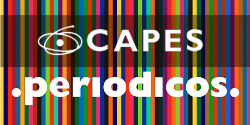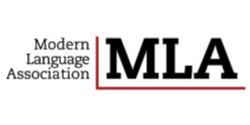CALL FOR PAPERS: DOSSIÊ A (IM)PERTINÊNCIA DA POESIA PORTUGUESA DE AGORA (DEPOIS DE 2000 ATÉ O PRESENTE) ABR. - JUN. (2022) - reabertura
The (im)pertinence of Portuguese poetry from nowadays
(after the 2000s until present time)
In order to understand some Portuguese poetry from later decades, we conjure up an older topic, originated from Hölderlin’s elegy, “Pão e Vinho” (Bread and Wine), in which the poet asks: “What are poets for in times of indigence?”. If Hölderlin had already announced, with concern, a world from where gods would have moved away, in the current days, poetry would not have the poet as a portrait of a literary absolute as a background anymore and would seem fated to a determinism of the praxis: the reduced space of poetry collections in publishers in comparison to novels; the lack of readers; the suspicion of being an extemporary art in a world devoted to the market’s rules.
Yet, to what extent do these evidences of bitterness make the most recent poetic gestures echo? Taking as a milestone the poetry edition after the 2000s, we can verify a bustling proliferation of poets and poetics that come up and feed new means of dissemination, new publishers and magazines. Where are these voices going? How can someone ponder these concerns that haunt as well as try to legitimize authors and works at the same time? How can one think about the many poetics without falling into a symptomatology that demands diagnosis? In other words, how do we place ourselves between critic and clinic, between exhaustion and exhaustiveness? How can one believe in the hypothesis of answer? How does one draft a map of Portuguese poetry from today without falling into an exercise of illusion and ideology?
It is difficult to try to answer these questions without raising the doubts. Even so, we dare to propose a thinking strategy that organizes itself around five issues: 1) the canon fever (legitimation of works and poets, theory of reception), 2) Poetry and technique (form/content, production/reception), 3) Poetry’s politics (public/ordinary), 4) Poetry and other arts (poetry and cinema, poetry and painting, poetry and music, poetry and performing arts, video-poetry) and 5) Poetry and edition (publishers, magazines, blogs).
Golgona Anghel
Faculdade de Ciências Sociais e Humanas da Universidade Nova de Lisboa (FCSH-UNL)
Instituto de Estudos de Literatura e Tradição (IELT/FCSH-UNL)
Ida Alves
Universidade Federal Fluminense
Submission: 16/05/2022 a 01/06/2022






